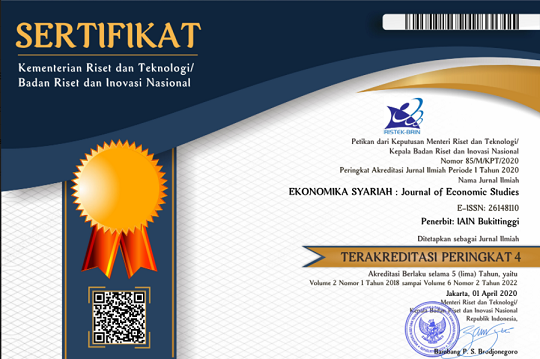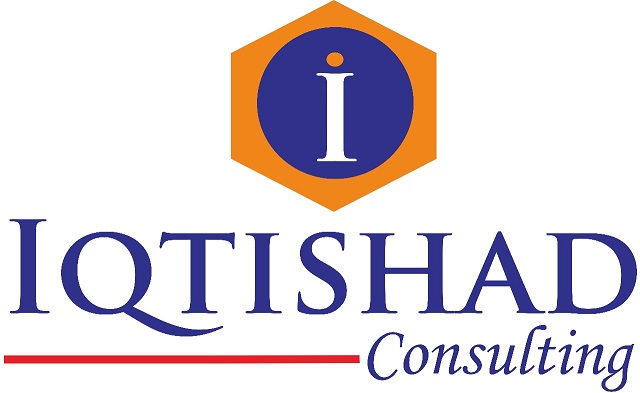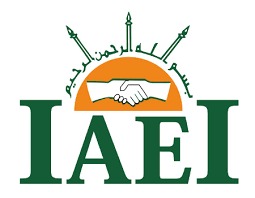The Waqf Integrated Income-Generating Model: A Catalyst for Indonesia's Sustainable Development Ambitions
DOI:
https://doi.org/10.30983/es.v8i1.8256Keywords:
Waqf, SDG, Sustainable, Income Generation ModelAbstract
This research delves into the effect of collective beliefs and anticipations regarding investment cooperation, technological progression, and administrative governance on fostering sustainable income through the Waqf Integrated Income Generating Model (WIIGM). The study, grounded in the Theory of Reasoned Action (TRA), empirically assesses public perceptions of the WIIGM. A survey conducted among 100 participants through convenience sampling and online questionnaires provides the data, which is analyzed using partial least squares structural equation modeling to test hypotheses. Prior ethical approval was secured for data collection. Findings from this study highlight that sustainable income is positively influenced by investment collaboration and governance, but not by technological advancements. In terms of building trust (behavioral intention) in the WIIGM model, technological advancement does not show a significant effect. This novel investigation offers insights into how a newly proposed integrated income model for waqf institutions could enhance community trust. The study holds substantial implications. It is intended for professionals and government officials to understand waqf's functions, positions, and potential applications, considering community trust and beliefs.
References
Abdul Shukor, Syadiyah et al. 2019. “Trust on Awqaf Institutions: Evidence from Malaysia.” Journal of Islamic Marketing 10(2): 511–24.
Abiba, Riska Widya, and Eko Suprayitno. 2024. “Optimalisiasi Wakaf Produktif Dalam Mendukung Upaya Pencapaian SDGs Melalui Pemberdayaan Peternakan.” Al-Intaj: Jurnal Ekonomi Dan Perbankan Syariah 9(1): 109–23.
Ajzen, Icek, Martin Fishbein, Sophie Lohmann, and Dolores Albarracín. 2018. “The Influence of Attitudes on Behavior.” The handbook of attitudes, volume 1: Basic principles: 197–255.
Amin, Hanudin, M Kabir Hassan, and Imran Mehboob Shaikh. 2024. “Waqf-Based Qardhul Hassan Financing Preference in Malaysia: An Exploratory Study.” International Journal of Ethics and Systems 40(3): 651–71.
Azrai Azaimi Ambrose, Azniza Hartini, and Fadhilah Abdullah Asuhaimi. 2021. “Cash Waqf Risk Management and Perpetuity Restriction Conundrum.” ISRA International Journal of Islamic Finance 13(2): 162–76.
Basyirah, Luthfiana, Osrita Hapsara, and Siti Hamidah. 2023. KONSEP BISNIS ISLAM. Mafy Media Literasi Indonesia.
Begum, Halima et al. 2019. “Development of Islamic Microfinance: A Sustainable Poverty Reduction Approach.” Journal of Economic and Administrative Sciences 35(3): 143–57.
Budiantoro, Risanda Alirastra, Riesanda Najmi Sasmita, and Tika Widiastuti. 2018. “Sistem Ekonomi (Islam) Dan Pelarangan Riba Dalam Perspektif Historis.” Jurnal Ilmiah Ekonomi Islam 4(01): 1.
Candra, Hari, and Asmak Ab Rahman. 2010. “Waqf Investment: A Case Study of Dompet Dhuafa Republika, Indonesia.” Jurnal Syariah 18(1): 163–90.
Dewi, Ni Putu Sinta et al. 2024. “Dasar Metode Penelitian.”
Donovan, Rob, and Nadine Henley. 2010. Principles and Practice of Social Marketing: An International Perspective. Cambridge University Press.
Fuadi, Nasrul Fahmi Zaki. 2018. “Wakaf Sebagai Instrumen Ekonomi Pembangunan Islam.” Economica: Jurnal Ekonomi Islam 9(1): 151–77.
Hasan, Rashedul, M Kabir Hassan, and Mamunur Rashid. 2019. “The Role of Waqf in Educational Development-Evidence from Malaysia.” Journal of Islamic Finance 8(1): 1–7.
Hidayah, Nur et al. 2023. “Public Perception of the Revitalization of Indonesian Waqf Institution.” EKONOMIKA SYARIAH: Journal of Economic Studies 7(1): 72–85.
Ibrahim, Siti Sara et al. 2023. “Waqf Integrated Income Generating Model (WIIGM) for Enhancing Sustainable Development Goals (SDGS) in Malaysia: An Evaluation of Behavioural Intention.” International Journal of Ethics and Systems 39(4): 841–58.
Irfany, Mohammad Iqbal, and Asep Nurhalim. 2022. “Faktor-Faktor Yang Memengaruhi Keputusan Masyarakat Dalam Memilih Wakaf Uang.” Al-Awqaf: Jurnal Wakaf dan Ekonomi Islam 15(2): 1–25.
Jamaludin, Nur, Miftahurrahmah Miftahurrahmah, and Muizzudin Muizzudin. 2023. “Islamic Micro Finance Institutions’ Existence, Role, and Challenges in Developing the Indonesian Micro Business Sector Post Covid 19 Pandemic.” EKONOMIKA SYARIAH: Journal of Economic Studies 7(2): 155–65.
Joni, Yefri, and Adelina Zuleika. 2018. “WAKAF SEBAGAI ALTERNATIF PENGELOLAAN DANA TABARRU’PADA TAKAFUL.” EKONOMIKA SYARIAH: Journal of Economic Studies 1(2).
Khanifa, Nurma Khusna. 2018. “Penguatan Peran Ziswaf Dalam Menyongsong Era SDGs: Kajian Filantropi BMT Tamzis Wonosobo.” Cakrawala: Jurnal Studi Islam 13(2): 149–68.
Latif, Saripah Abdul, Nik Muniyati Nik Din, and Zaiton Mustapha. 2018. “The Role of Good Waqf Governance in Achieving Sustainable Development.” Environment-Behaviour Proceedings Journal 3(7): 113–18.
Mufti, Aries, Muhammad Syakir Sula, and Anab Afifi. 2007. Amanah Bagi Bangsa: Konsep Sistem Ekonomi Syariah. Masyarakat Ekonomi Syariah (MES): Majelis Ulama Indonesia (MUI).
Musthofa, Budiman Mahmud, and Banu Muhammad Haidlir. 2022. “The Implementasi Kebijakan Wakaf Dalam Mendukung Penyelenggaraan Kesejahteraan Sosial.” Sosio Informa 8(3).
Nuraini, Ida, Erika Takidah, and Achmad Fauzi. 2018. “Faktor-Faktor Yang Mempengaruhi Intensi Dalam Membayar Wakaf Uang Pada Pegawai Kantor Wilayah Kementerian Agama Provinsi DKI Jakarta.” Jurnal Ekonomi Syariah dan Bisnis 1(2): 97–108.
Rosihana, Riscki Elita et al. 2024. Pengantar Ekonomi. Yayasan Kita Menulis.
Rosyadi, Rizky et al. 2024. “Manajemen Investasi Syariah.”
Shonia Az Zahra, Qiny et al. 2023. “Digital Marketing.”
Sugiyono. 2013. Metode Penelitian Kuantitatif Kualitatif Dan R&D. Bandung: Alfabeta.
———. 2018. “Metode Penelitian Kuantitatif,Kualitatif Dan R&D.” In Ke-26,.
Suryani, Ermi, and Azizah Mursyidah. 2020. “Manajemen Wakaf Berbasis Teknologi Blokchain Dalam Meningkatkan Produktifitas Nadzir Dan Kebijakan Sustainable Development Goals.” Reslaj: Religion Education Social Laa Roiba Journal 2(1): 18–32.
Suryani, Suryani, and Yunal Isra. 2016. “Wakaf Produktif (Cash Waqf) Dalam Perspektif Hukum Islam Dan Maqāṣid Al-Sharī ‘Ah.” Walisongo: Jurnal Penelitian Sosial Keagamaan 24(1): 17–36.
Wadi, Dudun Anugerah, and Mohamad Soleh Nurzaman. 2020. “Millennials Behaviour towards Digital Waqf Innovation.” International Journal of Islamic Economics and Finance (IJIEF) 3(SI): 1–32.
Yuliafitri, Indri, and Arie Indra Rivaldi. 2017. “Pengaruh Penerapan Prinsip-Prinsip Good Governance Dan Promosi Terhadap Penerimaan Wakaf Tunai (Pada Lembaga Pengelola Wakaf Di Indonesia).” InFestasi 13(1): 217–26.
Zulaikha, Siti, and S Arif Rusmita. 2018. “Blockchain for Waqf Management.” KnE Social Sciences.
Downloads
Published
How to Cite
Issue
Section
Citation Check
License
Copyright (c) 2024 Abdullah Haidar, Evania Herindar, Tasya Arviannis, Ikha Nursyamsiyah, Nur Hendrasto

This work is licensed under a Creative Commons Attribution-ShareAlike 4.0 International License.
Authors who publish with this journal agree to the following terms:
- Authors retain copyright and grant the journal right of first publication with the work simultaneously licensed under a Creative Commons Attribution-ShareAlike 4.0 International License that allows others to share the work with an acknowledgment of the work's authorship and initial publication in this journal.
- Authors are able to enter into separate, additional contractual arrangements for the non-exclusive distribution of the journal's published version of the work (e.g., post it to an institutional repository or publish it in a book), with an acknowledgment of its initial publication in this journal.
- Authors are permitted and encouraged to post their work online (e.g., in institutional repositories or on their website) prior to and during the submission process, as it can lead to productive exchanges, as well as earlier and greater citation of published work (See The Effect of Open Access).




